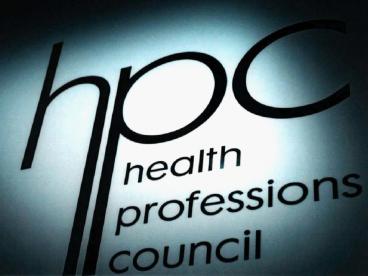Health, disability and registration - PowerPoint PPT Presentation
1 / 18
Title:
Health, disability and registration
Description:
Legal framework - derives powers from statutory instruments ... General Chiropractic Council. General Dental Council. General Medical Council ... – PowerPoint PPT presentation
Number of Views:36
Avg rating:3.0/5.0
Title: Health, disability and registration
1
(No Transcript)
2
Health, disability and registration Rachel Tripp,
Policy Manager
3
Contents
- Role of regulators
- Background to the project
- The professional liaison group
- Key concerns
- The guidance
4
Statutory regulators
- Independent UK regulators
- Legal framework - derives powers from statutory
instruments - Function - statutory professional self-regulation
- Purpose to safeguard the health and well-being
of persons using or needing the services of
registrants Article 3(4)
5
UK Regulators of Healthcare Professionals
- General Chiropractic Council
- General Dental Council
- General Medical Council
- General Optical Council
- General Osteopathic Council
- Nursing and Midwifery Council
- Pharmaceutical Society of NI
- Royal Pharmaceutical Society of GB
6
Professions regulated
- Art therapists
- Biomedical scientists
- Chiropodist podiatrists
- Clinical scientists
- Dietitians
- Occupational therapists
- Operating department practitioners
- Orthoptists
- Paramedics
- Physiotherapists
- Prosthetists orthotists
- Radiographers
- Speech language therapists
- Doctors
- Nurses
- Midwives
- Specialist community public health nurses
- Pharmacists
- Dentists
- Dental professionals
- Osteopaths
- Chiropractors
others?
7
Complementary roles
- Professional Body
- Body of knowledge/ Learned Society
- Promotion of profession / representation of
members - Trade Association
- Terms conditions
- Regulator
- Sets and maintains standards
- Protects the public
8
Four key functions
sets Standards
regulator
Approves courses
Keeps a Register
Takes action if necessary
9
Professional Liaison Group (PLG)
- Membership
- Council members (professional and lay members)
- Representatives from professional bodies
- Representatives from education
- Representatives from disability groups /
organisations.
10
Work of PLG
To more general guidance that would allow
decisions to be made about individuals
Moved from impairment focussed, or condition
focussed.
Benefits of early consultation with stakeholders
and expertise of group
11
Key points in process identified
- When someone applies to an approved course
- When someone applies to be registered with us and
needs a health reference
12
Drafting guidance key concerns
- Clear language
- Stand-alone documents
- Information for all parties in one document no
secrets - Use of examples to prompt thinking
- Making the process clear and giving full
information explaining role of education
providers, employers, etc.
13
A disabled persons guide to becoming a health
professional
- Section for applicants
- Section for admissions staff
- To fulfil responsibility to HPC, approved courses
need to ensure graduates can meet the Standards
of Proficiency.
14
Meeting the Standards of Proficiency
- Includes any reasonable adjustments
- Must go back to the standards
- Under DDA, these are competence standards which
are required to practise a profession. - Act as a tool to prompt thinking re adjustments
15
Thinking about risk
- Individual assessment
- No assumptions
- Challenging notions of risk and disability
- Issues which came up around disability apply to
everyone on the Register - Talking through and documenting issues and ideas
16
Registration vs. Employment
- Meet threshold standards
- Fitness to practise
- Not a guarantee of employment but is required
for employment.
Meet person specification Fitness for
purpose Occupational health Reasonable
adjustments
This issue applies to everyone on the Register
17
Information about the health reference
- Section for applicants
- Section for doctors
- Not good health health not impairing fitness
to practise - Not fitness to work
- Do not need detailed medical history
18
Information about the health reference
- Doctor is not asked to assess professional skills
or likelihood of employment - Professional opinion
- Insight and understanding
- Information about what happens when we receive
reference. - No applicant has yet been refused registration on
health grounds.

